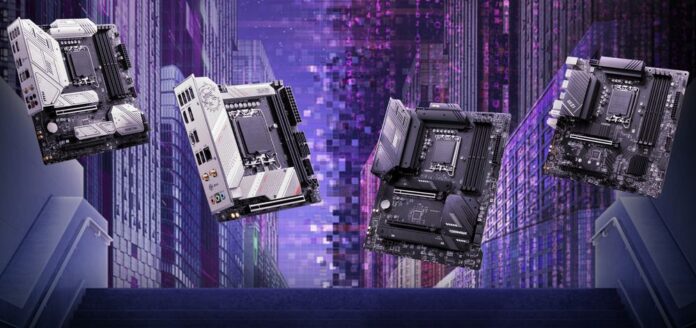MSI has presented its motherboard line-up powered by Intel’s mid-range B760 chipset offering PCIe Gen 5 for graphics, DDR4 or DDR5 memory support up to 7,000MT/s, and enough sizes to suit everyone’s needs.
On the menu we have five models; MAG B760 Tomahawk Wi-Fi, MAG B760M Mortar Max Wi-Fi, Pro B760-P Wi-Fi, Pro B760M-A Wi-Fi, and MPG B760I Edge Wi-Fi, each available in two variants – DDR4 and DDR5.
All models include VRM heatsinks, MSI’s M.2 Shields Frozr for M.2 SSDs cooling, EZ M.2 clip for fast SSD mounting, a pre-installed I/O shield for a seamless build experience, and enough fan headers for most users. To make buyers’ lives easier, the boards support both Intel’s XMP and AMD’s EXPO memory profiles, so you don’t have to worry about maximum performance out of the box.
MAG B760 Tomahawk Wi-Fi
The Tomahawk is an ATX board featuring a six-layer PCB with 12+1+1 75A power stages fed via two 8-pin EPS connectors. It includes one PCIe Gen 5 x16 slot for graphics cards, three PCIe Gen 4 x4 M.2 slots (one from the CPU), four SATA ports, and four memory slots supporting up to 128GB of DDR5-7000 or DDR4-5333 (depending on the model). Two additional PCIe Gen 3 x4 and Gen 4 x1 are available for uses such as capture cards or what have you.
Connectivity is made of four USB 2.0, four USB 3.2 Gen 2, one USB 3.2 Gen 2×2 Type-C, Realtek 2.5GbE, Intel Wi-Fi 6E and Bluetooth 5.3. Not forgetting a single HDMI 2.1 and DisplayPort 1.4 for video output.
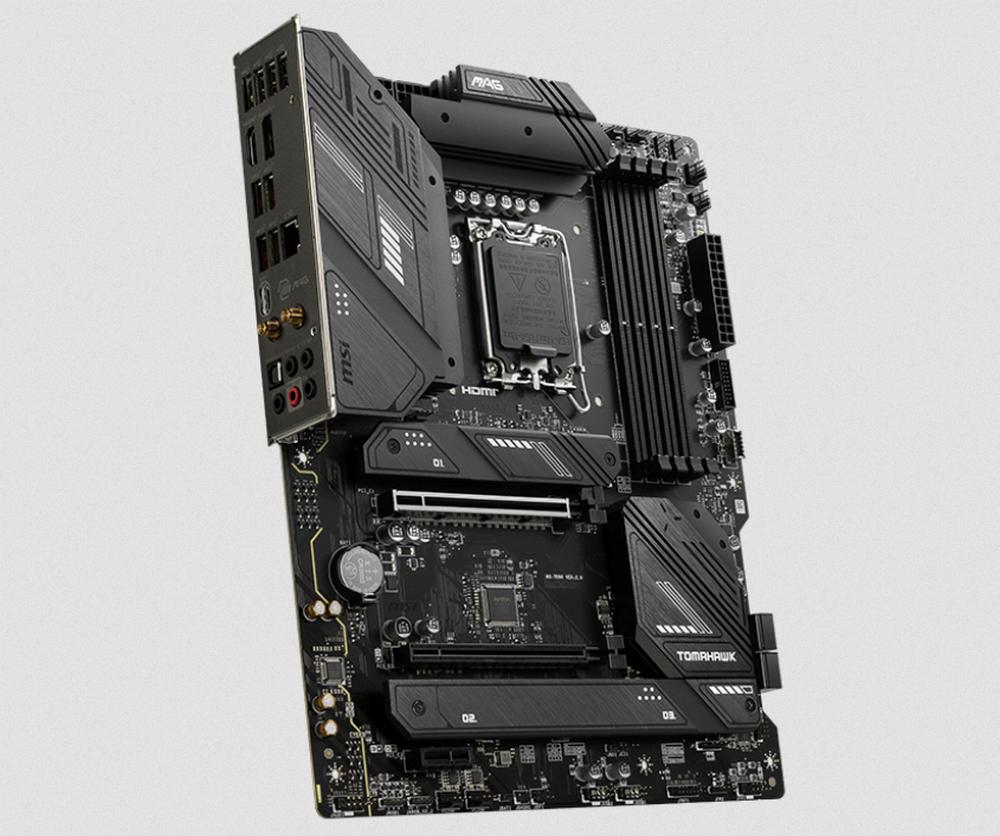
MAG B760M Mortar Max Wi-Fi
The Mortar Max is a bit smaller, following the Micro-ATX format. It also has a six-layer PCB with 12+1+1 75A power stages fed via two 8-pin connectors, one PCIe Gen 5 x16 slot, two PCI Gen 4 M.2 slots (one from CPU), six SATA III ports, and four DIMM slots supporting up to 128GB of DDR5-7000 or DDR4-5333. Being a Micro-ATX board, however, doesn’t mean you are losing on expansion possibilities, since there are two extra PCIe Gen 3 x4 and Gen 4 x1 slots.
I/O comprises four USB 2.0, three USB 3.2 Gen 2, one USB 3.2 Gen 2×2 Type-C, one HDMI 2.1, one DisplayPort 1.4, 2.5GbE, Wi-Fi 6E and Bluetooth 5.3. Phew.
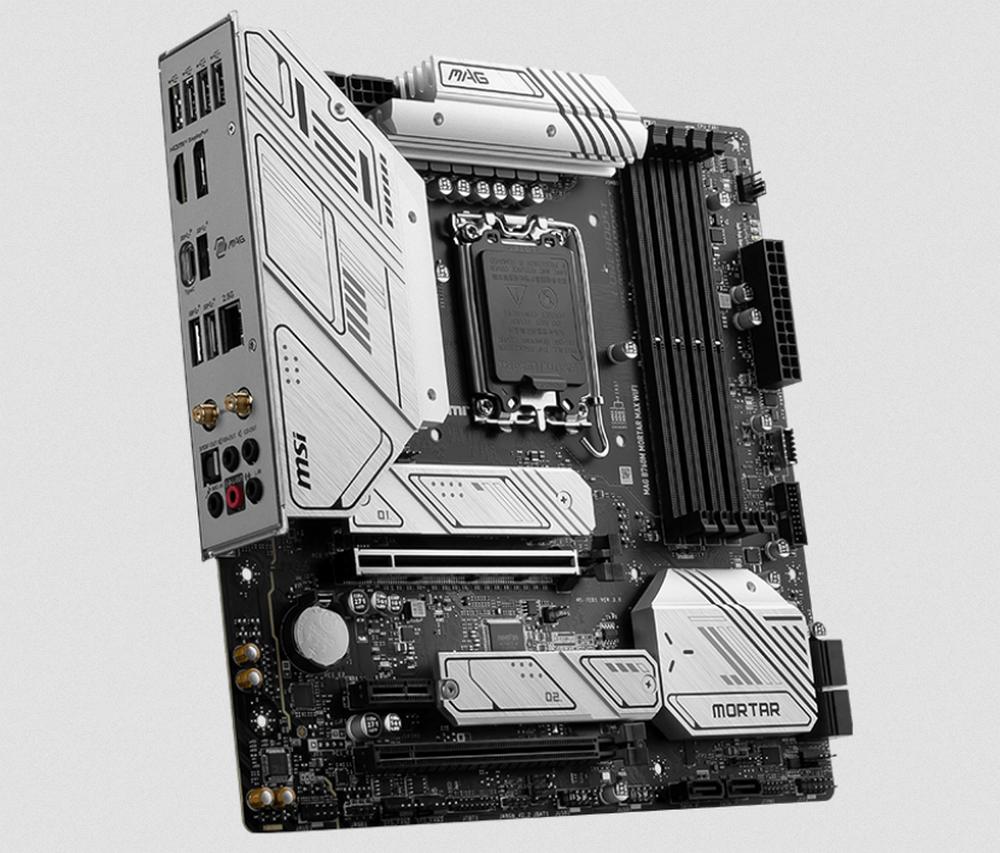
Pro B760-P Wi-Fi, Pro B760M-A Wi-Fi
The former takes the ATX format while the latter chops a bit of length to fit the Micro-ATX standard. Both Pro models feature a 12+1+1-phase power design fed via an 8-pin plus a 4-pin header, although MSI doesn’t specify specs (maybe 50A). The graphics cards lose the faster PCIe Gen 5 slot, instead getting only a Gen 4 x16, which is absolutely not a problem, at least with today’s cards that still only use PCIe Gen 4. Memory support is a smidge slower, maxing at up to DDR5-6800 and DDR4-5333.
Pro B760-P Wi-Fi’s connectivity is handled by four USB 2.0, two USB 3.2 Gen 2, one USB 3.2 Gen 2 Type-C, one HDMI 2.1, one DisplayPort 1.4, a combo PS/2, 2.5GbE, Wi-Fi 6E and Bluetooth. The Pro B760M-A Wi-Fi, on the other hand, changes things a bit, opting for two USB 2.0, two USB 3.2 Gen 1, two USB 3.2 Gen 2, two HDMI 2.1, two DisplayPort 1.4 a combo PS/2, 2.5GbE, Wi-Fi 6E and Bluetooth.
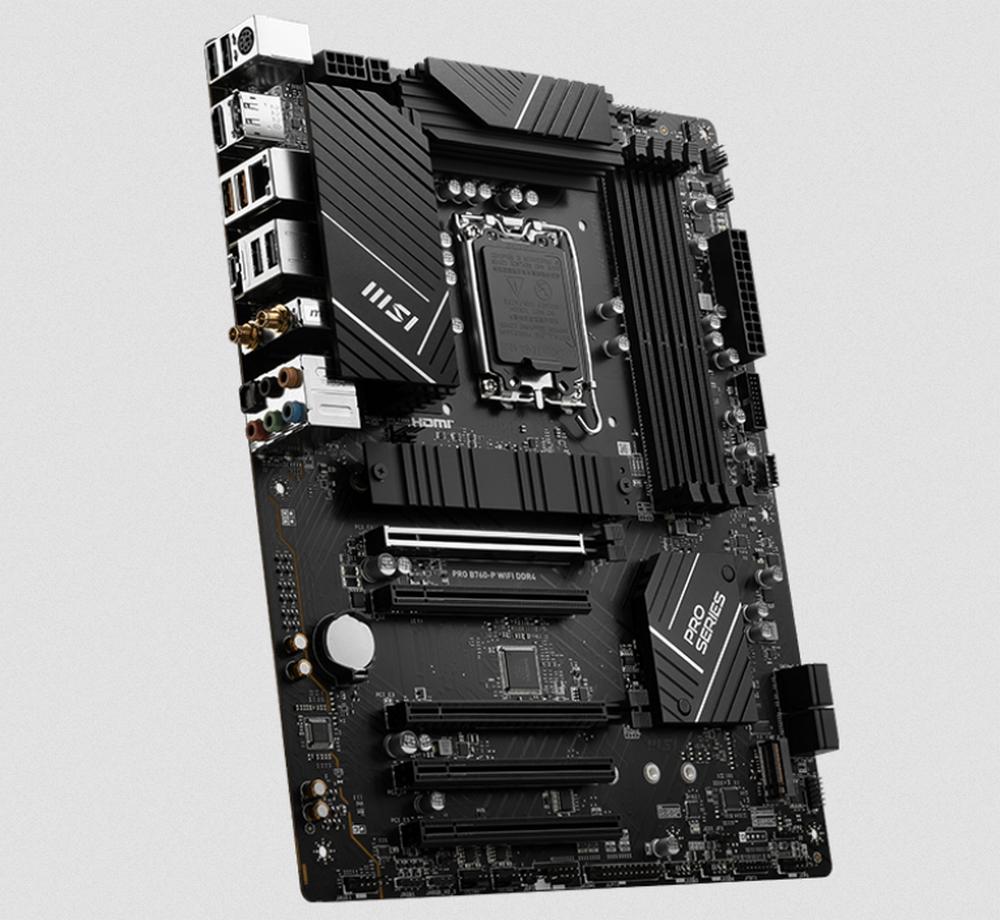
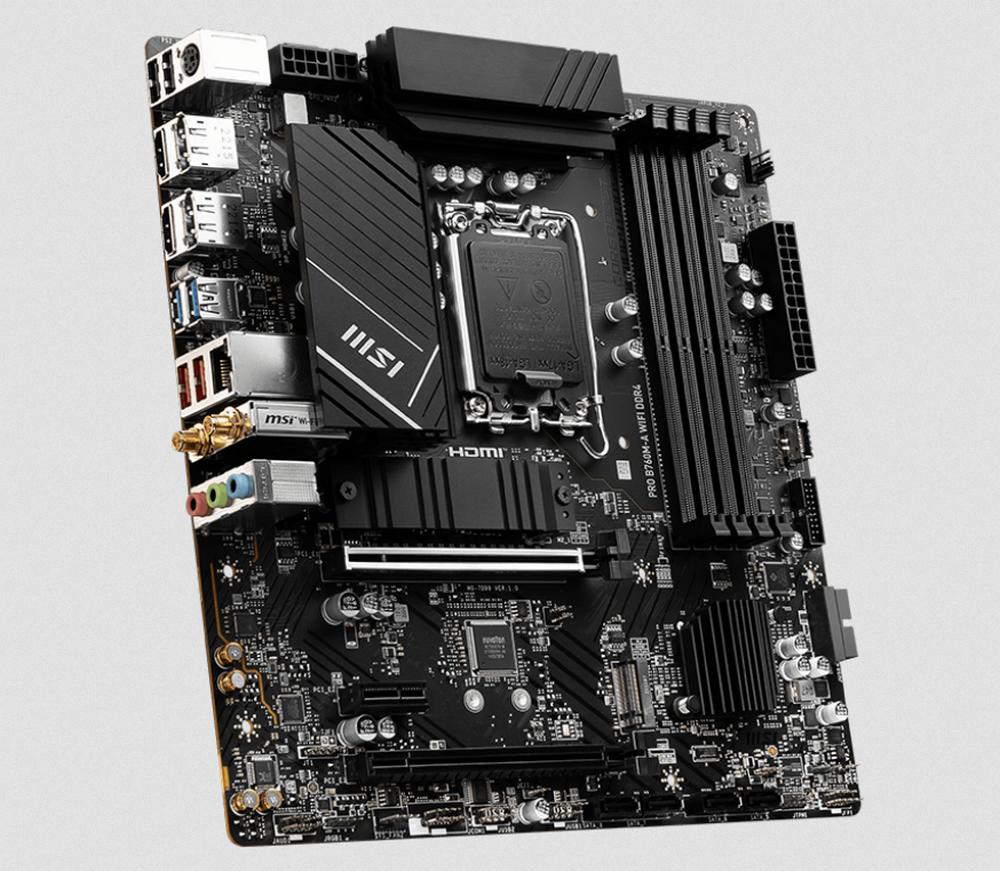
MPG B760I Edge Wi-Fi
The Edge is a Mini-ITX board for those who like tiny machines, cramming as many components as possible in limited space. The power delivery system is the first casualty, which goes down to 8+1+1 stages but of a higher 90A spec, so performance should still be good. For expansion, things are simpler – there’s a single PCIe Gen 5 for graphics, two PCIe Gen 4 M.2 slots (both from the chipset), four SATA III ports, and two memory slots supporting up to 64GB of DDR5-7000 or DDR4-5333.
With I/O not being affected by the size reduction, we find two USB 2.0, four USB 3.2 Gen 1, one USB 3.2 Gen 2, one USB 3.2 Gen 2 Type-C, one HDMI 2.1, one DisplayPort 1.4, 2.5GbE, Intel Wi-Fi 6E and Bluetooth 5.3.
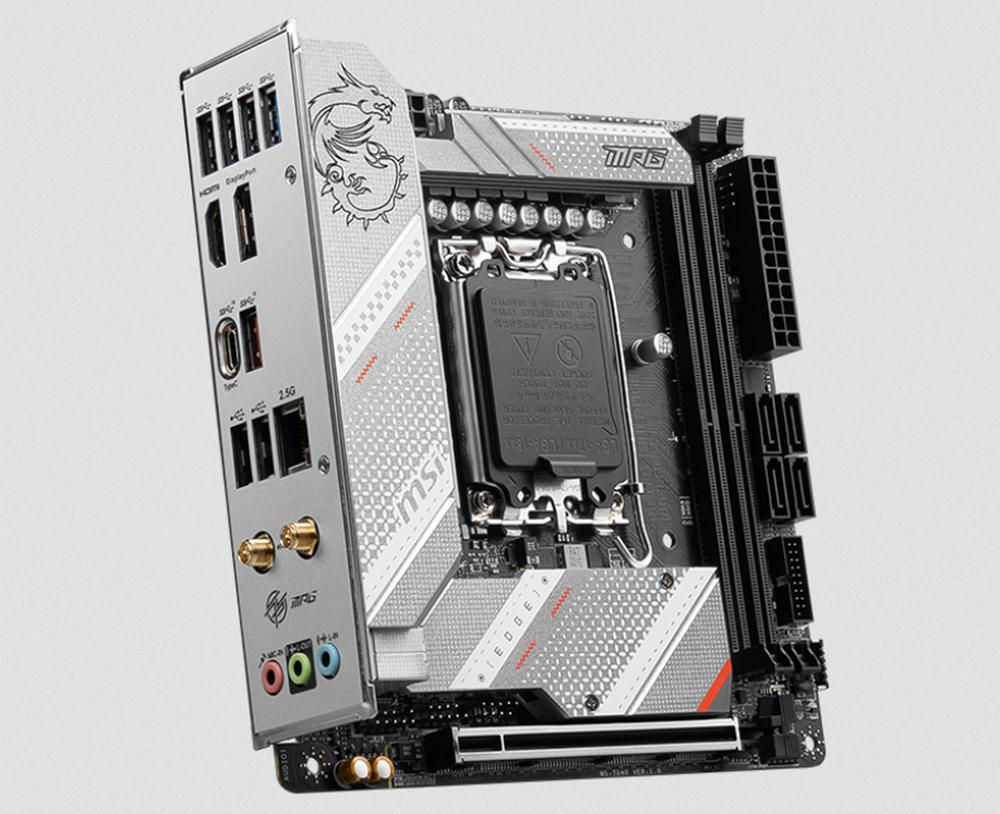
Now, regarding pricing, we are still in the dark, but do not worry since these are not high-end motherboards like the MEG Unify, so the cost should be more palatable.

